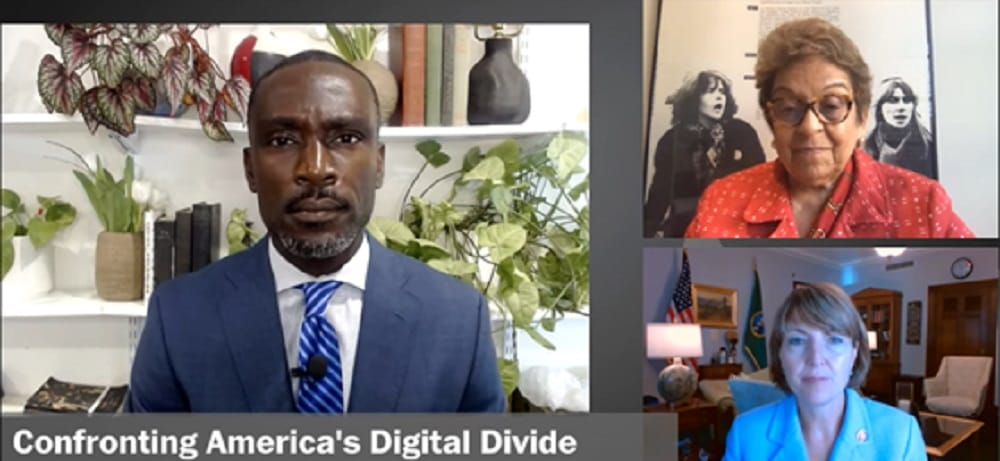Representatives, Former Education Secretary Highlight Technologies and Broadband Funding
October 4, 2020 – Access to technology is the biggest thing preventing Congress from making progress on COVID-19 relief, said Rep. Cathy McMorris Rodgers, R-Wash. Rodgers, speaking at a Washington Post livestream event on Wednesday, said that Rodgers said that constituents in her district were excit

October 4, 2020 – Access to technology is the biggest thing preventing Congress from making progress on COVID-19 relief, said Rep. Cathy McMorris Rodgers, R-Wash.
Rodgers, speaking at a Washington Post livestream event on Wednesday, said that Rodgers said that constituents in her district were excited about Microsoft’s television “white spaces” project’s ability to transmit broadband signal through the frequency gaps in between television broadcast channels.
She said the government has made progress with investments in hospitals, schools, libraries, as well as funding for better broadband mapping.
Rep. Donna Shalala, D-Florida, said that E-rate program funds should be better used to connect people to broadband. To her mind, broadband access is an issue of affordability, and not just infrastructure.
John King, CEO of the Education Trust and former secretary of education during the final year of the Obama administration, said that businesses need to fund more broadband deployment. He emphasized that cable companies were in a position to do, and had a moral responsibility to do so.
King also called for the business community to push the HEROES Act through Congress, and said that the bill could help solve the device access problem prevalent in some urban areas.
Apjit Walia, global head of technology and investment strategy at Deutsche Bank, preached the benefits of investing in domestic markets. He referenced a bank study showing that if the gap were not addressed, in 25 years 80 percent of jobs would be out of reach for 60 to 80 percent of minorities because of a skills gap.
Walia explained that investing in these markets had benefits beyond building goodwill through bipartisan efforts because compared to emerging markets, the underprivileged minority demographic has three times the purchasing power of, for instance, Indian markets.










